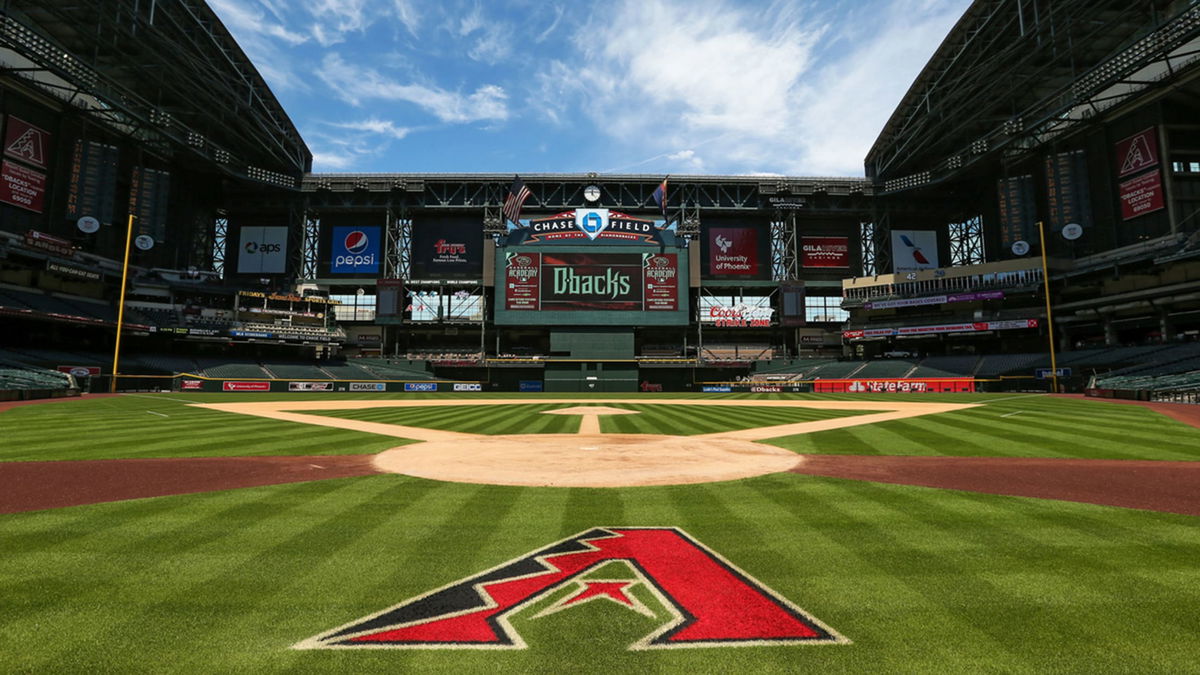

Talks had been stalled for years. Renovation plans floated in and out of city council meetings; however, nothing stuck. The stadium kept aging—quietly, visibly. Cracks in infrastructure became cracks in trust. Then, almost overnight, urgency kicked in and funding was suddenly on the table. Arizona Diamondbacks’ MLB ballpark, long linked with the city’s sports identity, found itself holding more leverage than ever before.
Watch What’s Trending Now!
As stadium leaks worsened and infrastructure failed behind the scenes, the Diamondbacks sent a subtle but pointed message. Former star and now advisor Luis Gonzalez warned, “The stadium is in dire need of improvement and repair. We need a new scoreboard, the roof needs fixing. Then there are the critical repairs nobody sees—the plumbing, the pipes, and other infrastructure fixes. Obviously, there are other states that want teams… We don’t want to go anywhere. We want to be here in Arizona.”
This is not just an observation, it is leverage. Floating the idea that “other states want teams” was more than enough to spark a serious approach in Phoenix, specifically, in the wake of the Coyotes’ relocation to Utah.
ADVERTISEMENT
The team’s lease at Chase Field expires in 2027, and while the Diamondbacks say they plan to stay, the unspoken threat of relocation hovered loudly. They also do not own Chase Field, yet lawmakers moved swiftly to pass House Bill 2704. This is a stadium rescue approach directing $500 million in sales tax revenue over 30 years strictly for vital repairs. This contains vital fixes to the HVAC system, cement base, and other core aspects, not luxury upgrades. One lawmaker called it “upgrading a rental car.”
However, there was a twist.
In a late-stage amendment, policymakers added a mandatory $250 million help from the team, spread over three decades. That made the total renovation worth $750 million, despite the Diamondbacks being just tenants. This bill all but ensures they stay downtown through at least 2055. While no lease extension is signed yet, Derrick Hall, the Diamondbacks president, called the bill “a monumental victory” and confirmed the team will now transform its focus to negotiating that extension.
ADVERTISEMENT
The team did not explicitly say they would leave. And the Diamondbacks did not need to, as well. In the current MLB environment, a well-placed hint also can move policy, and for Phoenix, after already losing one pro team, this was enough to write a $500 million check.
However, as the financial aspects lock into place and the team signals long-term stability in Arizona, not everyone is clapping from the stands.
ADVERTISEMENT
Public backlash can grow as Brodie Brazil questions hidden costs for MLB ballpark
While the funding for Chase Field will technically come from existing sales tax revenue generated at the site and surrounding businesses, this money was previously destined for city, county, and state services. Insiders argue that during budget constraints, diverting $500 million over three decades for stadium repairs—specifically for the team that does not even own the park—feels tone-deaf.
As Brodie Brazil said, it is tough to justify funneling public money into baseball “when there are more important things than, quite honestly, baseball.” The backdrop of this decision, “what if,” adds to the discomfort, as some feel the team covertly utilized it as a force tactic to push lawmakers into action.
ADVERTISEMENT
Such skepticism deepens when you look closer at the bill.
Top Stories
Framber Valdez Hit With Harsh Reality Check as Orioles, Blue Jays Lock Horns In Heated Battle

Brian Cashman Distances Himself from Yankees’ Offseason Outcome with $162M Hal Steinbrenner Verdict

Cody Bellinger Snubs National Duty For Hal Steinbrenner as Yankees Loyalty Takes Priority

Mets Nation Demands Carlos Mendoza’s Ouster After Fresh Clubhouse Rift Blamed for 2025 Collapse

Max Scherzer’s “Unfinished Business” Sends Clear Signal to Blue Jays After Honest Plea to All 30 MLB Teams

Insiders highlight that the Diamondbacks’ owner can divert taxes from any restaurants and development projects established near the stadium, a perk considered a backdoor real estate windfall. Some slammed the inclusion of money from the state’s transportation tax, which was passed by its voters to fund roads and buses, as a blatant misuse.
But Gov. Katie Hobbs enjoys the bill and said, “I’m thrilled that the Legislature has passed a bill that will keep the Diamondbacks in Phoenix and create good-paying jobs. This is a huge win for every Arizonan.” Au contraire, Laurie Roberts from the Arizona Republic scoffed, “As if the sports fans who buy hot dogs and beer wouldn’t find some other way to spend their money.”
ADVERTISEMENT
The proof against stadium subsidies is overwhelming and almost unanimous. A 2017 study by the University of Chicago’s Booth School, which contained seven Nobel Prize-winning economists, identified that 83 percent agreed that publicly funded stadiums cost taxpayers more than they return in benefits. Just 4 percent supported the concept. Study after study has reinforced this point, highlighting minimal long-term economic gain for places that bankroll professional sports venues.
While Arizona might have secured the Diamondbacks’ future, with public funds and trust on the line, taxpayers are asking tough questions. As the renovations begin, everyone’s focus now shifts to whether this investment will truly pay off.
`
ADVERTISEMENT
ADVERTISEMENT
ADVERTISEMENT
ADVERTISEMENT